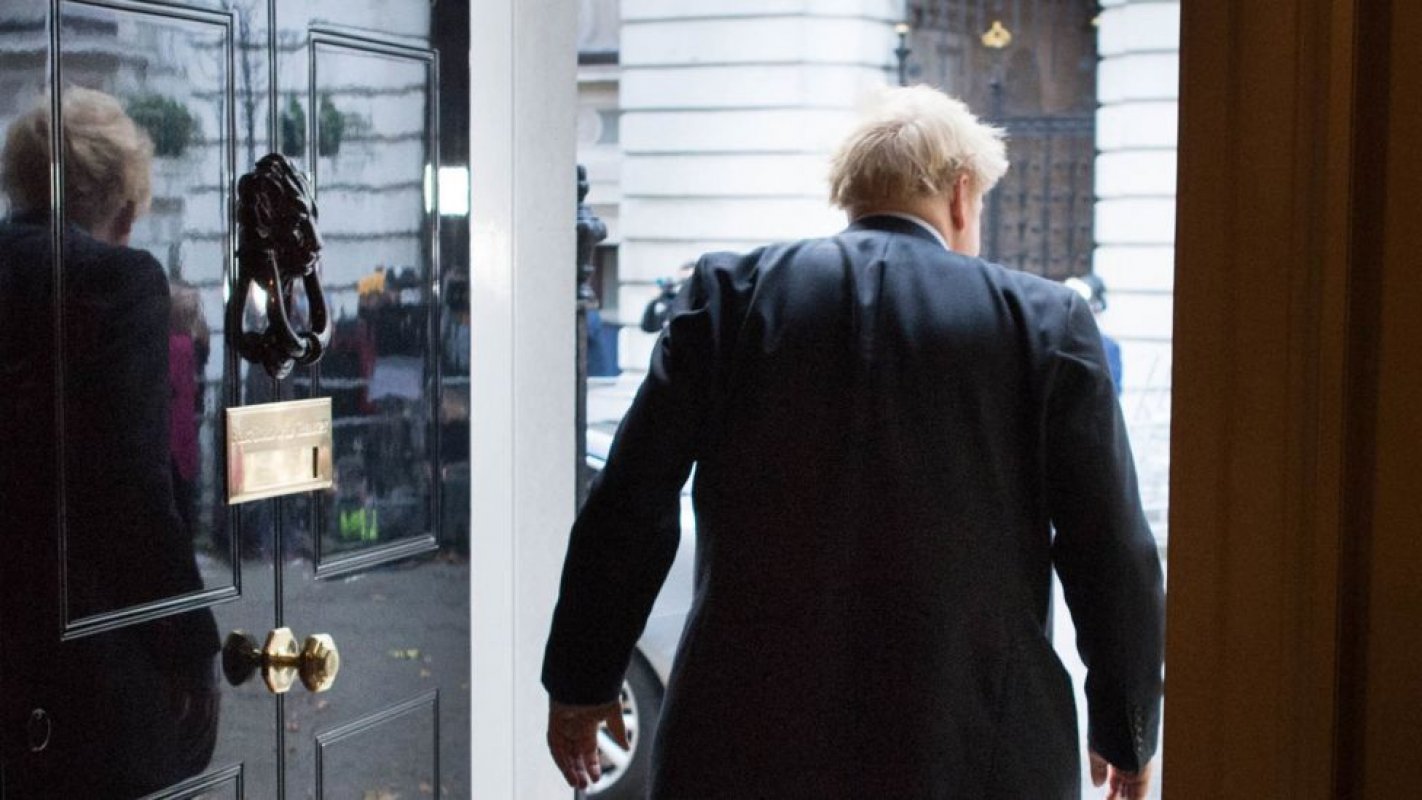In the past, prime ministers choosing to step down have usually stayed in office until a successor is found. That means he would stay in office until the Conservatives choose a new leader, as his predecessors Theresa May and David Cameron did when they resigned.
It's been suggested that process could last until October, although it could be much shorter - the replacement of Theresa May as leader took two months.
In his resignation statement Mr Johnson said: "I've agreed with Sir Graham Brady, the chairman of our backbench MPs, that the process of choosing that new leader should begin now and the timetable will be announced next week."
Could he go any sooner?
Some Conservative MPs have suggested the timetable for the leadership election could be shortened and completed in a few weeks.
Former Conservative Prime Minister Sir John Major said it would be "unwise" for Mr Johnson to stay in office for three months. He said one option was that Mr Johnson could resign as prime minister immediately and his deputy Dominic Raab could take over temporarily.
But that appears unlikely now that Johnson has appointed a new cabinet.
Sir John also suggested there could be a significant change to the leadership election process. The timescale for the contest is decided by the executive of the 1922 Committee of backbench MPs, and they could decide to change the rules as well before the contest starts.
And to add to the mix, Labour leader Sir Keir Starmer says he intends to bring a parliamentary vote of no confidence.
Under a motion of no confidence, all MPs - not just Conservatives - would get to vote. One more MP voting in favour than against would be required for it to pass.
Such an outcome, however, would rely on Conservative MPs voting against their own government - which would be unlikely.
How do the Conservatives elect a new leader?
Once a Conservative leader stands down, an election for a new party leader is triggered. Under the current rules, candidates need the support of eight Conservative MPs to enter the race.
Once all the candidates have declared - if there are more than two candidates - Tory MPs will hold a series of votes until only two remain.
- in the first round, candidates must get 5% of the votes to stay in the running (currently 18 MPs)
- in the second round, they must get 10% (currently 36 MPs)
- in the following rounds, the candidate with the least number of votes is eliminated
Retrieved from :https://www.theguardian.com/business/2022/jul/07/uk-property-prices-rise-at-the-fastest-rate-for-18-years (7 July, 2022)
The information provided on this website is for reference only. C21 International shall not be liable for any errors, omissions, misstatements, or misrepresentations (express or implied), concerning any Information, and shall not have or accept any liability, obligation, or responsibility whatsoever for any loss, destruction, or damage (including without limitation consequential loss, destruction or damage) howsoever arising from or in respect of using, misusing, inability to use, or relying on the Information.

